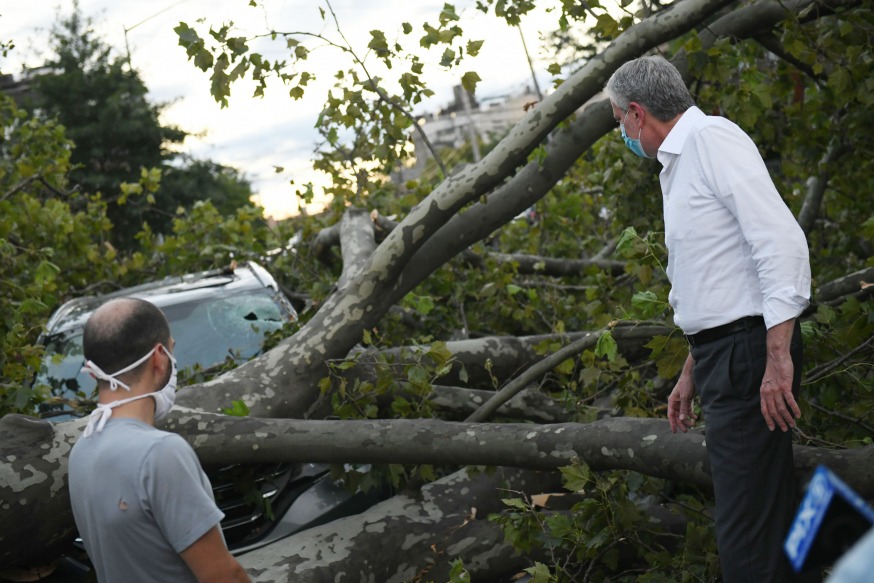
Mayor Bill de Blasio surveys storm damage in Astoria, Queens on Aug. 4, 2020. (Photo: Mayoral Photography Office)
Aug. 3 2021 By Michael Dorgan
A Queens lawmaker has introduced legislation that aims to reduce the risk of trees falling during severe weather events.
Council Member Peter Koo, who represents Flushing, wants the city to carry out regular tree inspections and to create a task force responsible for removing toppled trees following hurricanes and storms.
If passed, Koo said his package of bills would help minimize the chances of large trees crashing down, which puts residents at risk.
“Falling trees and limbs can destroy homes, cars, even lives,” said Koo, who introduced the two bills on July 29.
“Without regular inspections, the same trees that add so much character and beauty to our neighborhoods can cause mass destruction.”
The legislation comes nearly a year after Tropical Storm Isaias battered the city. Toppled trees took down wires across the borough and more than 46,000 Con Edison customers in Queens were left without power. A man was killed when a tree fell onto his car in Briarwood.
The first bill introduced by Koo would create a Downed Tree Task Force that would be responsible for removing fallen trees and tree limbs following a severe weather event.
The task force, which would consist of representatives from various city agencies and utility companies, would establish protocols for removing trees and responding to weather emergencies. It would meet twice per year to review and propose changes to its protocols.
The second bill introduced by Koo would require NYC Parks to inspect trees that may pose a threat to public safety. NYC Parks would have to post its findings to its website upon completing an inspection.
The Parks Dept. is the agency responsible for handling damaged trees on public property. This includes trees on sidewalks, parks and other public places.
NYC Parks would also be required to produce an annual report that shows the result of its tree inspections. The report would include the location of each tree inspected and what corrective actions were taken.
The results would then be posted online and would include a tree inspection map. The report would also include a list of trees that were requested to be checked by 311 submissions or other means.
“My legislation [would]… minimize the hazards of falling trees and ensure the health of our urban canopy,” Koo said.

A tree was destroyed in Sunnyside during Tropical Storm Isaias last year (Queens Post)
